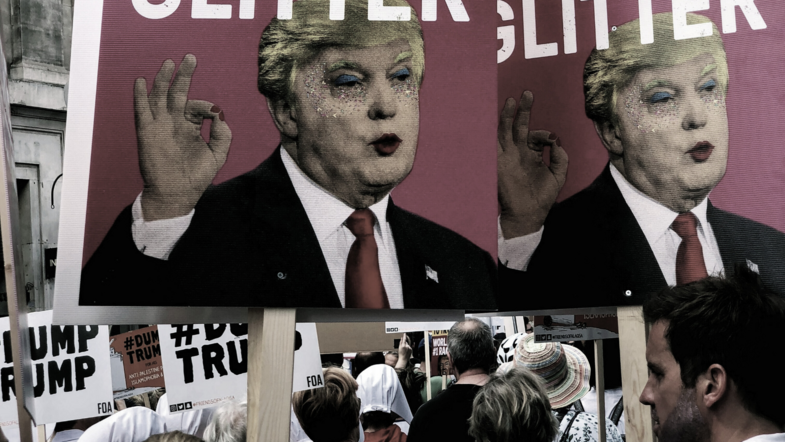GlobeLecture
Trump and the Global Rise of Fascism
Daniel Hedinger (Leipzig) speaks about the global rise of fascism, focusing on the USA and Donald Trump. This GlobeLecture is part of ReCentGlobe's Annual Conference 2025.
PD Dr. Daniel Hedinger is a research associate at ReCentGlobe and teaches at the Institute of East Asian Studies. After studying and working in Paris, Zurich, Berlin, Munich, Rome, and Kyoto, he came 2024 to Leipzig University. He specializes in modern East Asian and European history. His research focuses on global fascism, the history of the Second World War, and colonial violence in the 20th century from a transimperial perspective. He leads the "Centre for Transimperial History" together with Nadin Heé.
Abstract
Between the March on Rome in 1922 and the January 6 Capital attack of 2021 lies almost one hundred years. We now cannot help noticing that fascism is celebrating its centenary with an astonishing comeback. It is a comeback in a double sense: as a real-world phenomenon and an academic topic. On the one hand, we are just witnessing the rise of a radical right on a level not seen since the interwar years. Therefore, the ghosts, traumas, and catastrophes that haunted those years are back in the media and the broader public discussion. On the other hand, scholars are debating with increased intensity how all of this relates to interwar fascism and if we should label contemporary right-wing movements “fascist.”
All of this is obviously closely linked to Donald Trump’s rise and the political crisis in the USA. This keynote will explore how the concept of fascism can help us understand current developments. It will examine the interwar period to identify both parallels and differences. While comparisons of Trump to Mussolini or Putin to Hitler are often made, I argue that such simplistic parallels and direct continuities do not necessarily enhance our understanding of contemporary issues or interwar fascism. Instead, we should focus on the processes of mutual and cumulative radicalization, which, during the already interwar years, did not arise in isolation but rather from interconnected national contexts. To do this, the notion of transimperial fascism is key.
To participate, please register in advance via the
